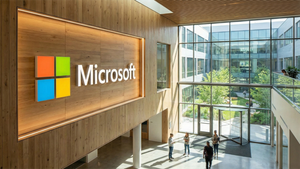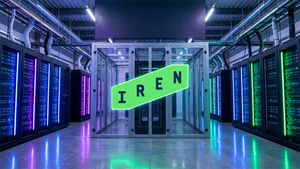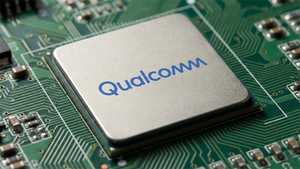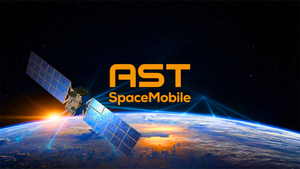
San Jose, CA – November 6, 2025 – In a monumental strategic move set to redefine the landscape of artificial intelligence deployment and talent development, Cisco Systems (NASDAQ: CSCO) has unveiled a comprehensive suite of AI infrastructure solutions alongside a robust portfolio of AI practitioner certifications. This dual-pronged announcement firmly positions Cisco as a pivotal enabler for the burgeoning AI era, directly addressing the industry's pressing need for both resilient, scalable AI deployment environments and a highly skilled workforce capable of navigating the complexities of advanced AI.
The immediate significance of these offerings cannot be overstated. As organizations worldwide grapple with the immense computational demands of generative AI and the imperative for real-time inferencing at the edge, Cisco's integrated approach provides a much-needed blueprint for secure, efficient, and manageable AI adoption. Simultaneously, the new certification programs are a crucial response to the widening AI skills gap, promising to equip IT professionals and business leaders alike with the expertise required to responsibly and effectively harness AI's transformative power.
Technical Deep Dive: Powering the AI Revolution from Core to Edge
Cisco's new AI infrastructure solutions represent a significant leap forward, architected to handle the unique demands of AI workloads with unprecedented performance, security, and operational simplicity. These offerings diverge sharply from fragmented, traditional approaches, providing a unified and intelligent foundation.
At the forefront is the Cisco Unified Edge platform, a converged hardware system purpose-built for distributed AI workloads. This modular solution integrates computing, networking, and storage, allowing for real-time AI inferencing and "agentic AI" closer to data sources in environments like retail, manufacturing, and healthcare. Powered by Intel Corporation (NASDAQ: INTC) Xeon 6 System-on-Chip (SoC) and supporting up to 120 terabytes of storage with integrated 25-gigabit networking, Unified Edge dramatically reduces latency and the need for massive data transfers, a crucial advantage as agentic AI queries can generate 25 times more network traffic than traditional chatbots. Its zero-touch deployment via Cisco Intersight and built-in, multi-layered zero-trust security (including tamper-proof bezels and confidential computing) set a new standard for edge AI operational simplicity and resilience.
In the data center, Cisco is redefining networking with the Nexus 9300 Series Smart Switches. These switches embed Data Processing Units (DPUs) and Cisco Silicon One E100 directly into the switching fabric, consolidating network and security services. Running Cisco Hypershield, these DPUs provide scalable, dedicated firewall services (e.g., 200 Gbps firewall per DPU) directly within the switch, fundamentally transforming data center security from a perimeter-based model to an AI-native, hardware-accelerated, distributed fabric. This allows for separate management planes for NetOps and SecOps, enhancing clarity and control, a stark contrast to previous approaches requiring discrete security appliances. The first N9300 Smart Switch with 24x100G ports is already shipping, with further models expected in Summer 2025.
Further enhancing AI networking capabilities is the Cisco N9100 Series Switch, developed in close collaboration with NVIDIA Corporation (NASDAQ: NVDA). This is the first NVIDIA partner-developed data center switch based on NVIDIA Spectrum-X Ethernet switch silicon, optimized for accelerated networking for AI. Offering high-density 800G Ethernet, the N9100 supports both Cisco NX-OS and SONiC operating systems, providing unparalleled flexibility for neocloud and sovereign cloud deployments. Its alignment with NVIDIA Cloud Partner-compliant reference architectures ensures optimal performance and compatibility for demanding AI workloads, a critical differentiator in a market often constrained by proprietary solutions.
The culmination of these efforts is the Cisco Secure AI Factory with NVIDIA, a comprehensive architecture that integrates compute, networking, security, storage, and observability into a single, validated framework. This "factory" leverages Cisco UCS 880A M8 rack servers with NVIDIA HGX B300 and UCS X-Series modular servers with NVIDIA RTX PRO 6000 Blackwell Server Edition GPUs for high-performance AI. It incorporates VAST Data InsightEngine for real-time data pipelines, dramatically reducing Retrieval-Augmented Generation (RAG) pipeline latency from minutes to seconds. Crucially, it embeds security at every layer through Cisco AI Defense, which integrates with NVIDIA NeMo Guardrails to protect AI models and prevent sensitive data exfiltration, alongside Splunk Observability Cloud and Splunk Enterprise Security for full-stack visibility and protection.
Initial reactions from the AI research community and industry experts have been overwhelmingly positive. Analysts laud Cisco's unified approach as a direct answer to "AI Infrastructure Debt," where existing networks are ill-equipped for AI's intense demands. The deep partnership with NVIDIA and the emphasis on integrated security and observability are seen as critical for scaling AI securely and efficiently. Innovations like "AgenticOps"—AI-powered agents collaborating with human IT teams—are recognized for their potential to simplify complex IT operations and accelerate network management.
Reshaping the Competitive Landscape: Who Benefits and Who Faces Disruption?
Cisco's aggressive push into AI infrastructure and certifications is poised to significantly reshape the competitive dynamics among AI companies, tech giants, and startups, creating both immense opportunities and potential disruptions.
AI Companies (Startups and Established) and Major AI Labs stand to be the primary beneficiaries. Solutions like the Nexus HyperFabric AI Clusters, developed with NVIDIA, significantly lower the barrier to entry for deploying generative AI. This integrated, pre-validated infrastructure streamlines complex build-outs, allowing AI startups and labs to focus more on model development and less on infrastructure headaches, accelerating their time to market for innovative AI applications. The high-performance compute from Cisco UCS servers equipped with NVIDIA GPUs, coupled with the low-latency, high-throughput networking of the N9100 switches, provides the essential backbone for training cutting-edge models and delivering real-time inference. Furthermore, the Secure AI Factory's robust cybersecurity features, including Cisco AI Defense and NVIDIA NeMo Guardrails, address critical concerns around data privacy and intellectual property, which are paramount for companies handling sensitive AI data. The new Cisco AI certifications will also cultivate a skilled workforce, ensuring a talent pipeline capable of deploying and managing these advanced AI environments.
For Tech Giants like Google (NASDAQ: GOOGL), Amazon (NASDAQ: AMZN), and Microsoft (NASDAQ: MSFT), Cisco's offerings introduce a formidable competitive dynamic. While these hyperscalers offer extensive AI infrastructure-as-a-service, Cisco's comprehensive on-premises and hybrid cloud solutions, particularly Nexus HyperFabric AI Clusters, present a compelling alternative for enterprises with data sovereignty requirements, specific performance needs, or a desire to retain certain workloads in their own data centers. This could potentially slow the migration of some AI workloads to public clouds, impacting hyperscaler revenue streams. The N9100 switch, leveraging NVIDIA Spectrum-X Ethernet, also intensifies competition in the high-performance data center networking segment, a space where cloud providers also invest heavily. However, opportunities for collaboration remain, as many enterprises will seek hybrid solutions that integrate Cisco's on-premises strength with public cloud flexibility.
Potential disruption is evident across several fronts. The integrated, simplified approach of Nexus HyperFabric AI Clusters directly challenges the traditional, more complex, and piecemeal methods enterprises have used to build on-premises AI infrastructure. The N9100 series, with its NVIDIA Spectrum-X foundation, creates new pressure on other data center switch vendors. Moreover, the "Secure AI Factory" establishes a new benchmark for AI security, compelling other security vendors to adapt and specialize their offerings for the unique vulnerabilities of AI. The new Cisco AI certifications will likely become a standard for validating AI infrastructure skills, influencing how IT professionals are trained and certified across the industry.
Cisco's market positioning and strategic advantages are significantly bolstered by these announcements. Its deepened alliance with NVIDIA is a game-changer, combining Cisco's networking leadership with NVIDIA's dominance in accelerated computing and AI software, enabling pre-validated, optimized AI solutions. Cisco's unique ability to offer an end-to-end, unified architecture—integrating compute, networking, security, and observability—provides a streamlined operational framework for customers. By targeting enterprise, edge, and neocloud/sovereign cloud markets, Cisco is addressing critical growth areas. The emphasis on security as a core differentiator and its commitment to addressing the AI skills gap further solidifies its strategic advantage, making it an indispensable partner for organizations embarking on their AI journey.
Wider Significance: Orchestrating the AI-Native Future
Cisco's AI infrastructure and certification launches represent far more than a product refresh; they signify a profound alignment with the overarching trends and critical needs of the broader AI landscape. These developments are not about inventing new AI algorithms, but rather about industrializing and operationalizing AI, enabling its widespread, secure, and efficient deployment across every sector.
These initiatives fit squarely into the explosive growth of the global AI infrastructure market, which is projected to reach hundreds of billions by the end of the decade. Cisco is directly addressing the escalating demand for high-performance, scalable, and secure compute and networking that underpins the increasingly complex AI models and distributed AI workloads, especially at the edge. The shift towards Edge AI and "agentic AI"—where processing occurs closer to data sources—is a crucial trend for reducing latency and managing immense bandwidth. Cisco's Unified Edge platform and AI-ready network architectures are foundational to this decentralization, transforming sectors from manufacturing to healthcare with real-time intelligence.
The impacts are poised to be transformative. Economically, Cisco's solutions promise increased productivity and efficiency through automated network management, faster issue resolution, and streamlined AI deployments, potentially leading to significant cost savings and new revenue streams for service providers. Societally, Cisco's commitment to making AI skills accessible through its certifications aims to bridge the digital divide, ensuring a broader population can participate in the AI-driven economy. Technologically, these offerings accelerate the evolution towards intelligent, autonomous, and self-optimizing networks. The integration of AI into Cisco's security platforms provides a proactive defense against evolving cyber threats, while improved data management through solutions like the Splunk-powered Cisco Data Fabric offers real-time contextualized insights for AI training.
However, these advancements also surface potential concerns. The widespread adoption of AI significantly expands the attack surface, introducing AI-specific vulnerabilities such as adversarial inputs, data poisoning, and LLMjacking. The "black box" nature of some AI models can complicate the detection of malicious behavior or biases, underscoring the need for Explainable AI (XAI). Cisco is actively addressing these through its Secure AI Factory, AI Defense, and Hypershield, promoting zero-trust security. Ethical implications surrounding bias, fairness, transparency, and accountability in AI systems remain paramount. Cisco emphasizes "Responsible AI" and "Trustworthy AI," integrating ethical considerations into its training programs and prioritizing data privacy. Lastly, the high capital intensity of AI infrastructure development could contribute to market consolidation, where a few major providers, like Cisco and NVIDIA, might dominate, potentially creating barriers for smaller innovators.
Compared to previous AI milestones, such as the advent of deep learning or the emergence of large language models (LLMs), Cisco's announcements are less about fundamental algorithmic breakthroughs and more about the industrialization and operationalization of AI. This is akin to how the invention of the internet led to companies building the robust networking hardware and software that enabled its widespread adoption. Cisco is now providing the "superhighways" and "AI-optimized networks" essential for the AI revolution to move beyond theoretical models and into real-world business applications, ensuring AI is secure, scalable, and manageable within the enterprise.
The Road Ahead: Navigating the AI-Native Future
The trajectory set by Cisco's AI initiatives points towards a future where AI is not just a feature, but an intrinsic layer of the entire digital infrastructure. Both near-term and long-term developments will focus on deepening this integration, expanding applications, and addressing persistent challenges.
In the near term, expect continued rapid deployment and refinement of Cisco's AI infrastructure. The Cisco Unified Edge platform, expected to be generally available by year-end 2025, will see increased adoption as enterprises push AI inferencing closer to their operational data. The Nexus 9300 Series Smart Switches and N9100 Series Switch will become foundational in modern data centers, driving network modernization efforts to handle 800G Ethernet and advanced AI workloads. Crucially, the rollout of Cisco's AI certification programs—the AI Business Practitioner (AIBIZ) badge (available November 3, 2025), the AI Technical Practitioner (AITECH) certification (full availability mid-December 2025), and the CCDE – AI Infrastructure certification (available for testing since February 2025)—will be pivotal in addressing the immediate AI skills gap. These certifications will quickly become benchmarks for validating AI infrastructure expertise.
Looking further into the long term, Cisco envisions truly "AI-native" infrastructure that is self-optimizing and deeply integrated with AI capabilities. The development of an AI-native wireless stack for 6G in collaboration with NVIDIA will integrate sensing and communication technologies into mobile infrastructure, paving the way for hyper-intelligent future networks. Cisco's proprietary Deep Network Model, a domain-specific large language model trained on decades of networking knowledge, will be central to simplifying complex networks and automating tasks through "AgenticOps"—where AI-powered agents proactively manage and optimize IT operations, freeing human teams for strategic initiatives. This vision also extends to enhancing cybersecurity with AI Defense and Hypershield, delivering proactive threat detection and autonomous network segmentation.
Potential applications and use cases on the horizon are vast. Beyond automated network management and enhanced security, AI will power "cognitive collaboration" in Webex, offering real-time translations and personalized user experiences. Cisco IQ will evolve into an AI-driven interface, shifting customer support from reactive to predictive engagement. In the realm of IoT and industrial AI, machine vision applications will optimize smart buildings, improve energy efficiency, and detect product flaws. AI will also revolutionize supply chain optimization through predictive demand forecasting and real-time risk assessment.
However, several challenges must be addressed. The industry still grapples with "AI Infrastructure Debt," as many existing networks cannot handle AI's demands. Insufficient GPU capacity and difficulties in data centralization and management remain significant hurdles. Moreover, securing the entire AI supply chain, achieving model visibility, and implementing robust guardrails against privacy breaches and prompt-injection attacks are critical. Cisco is actively working to mitigate these through its integrated security offerings and commitment to responsible AI.
Experts predict a pivotal role for Cisco in the evolving AI landscape. The shift to AgenticOps is seen as the future of IT operations, with networking providers like Cisco moving "from backstage to the spotlight" as critical infrastructure becomes a key driver. Cisco's significant AI-related orders (over $2 billion in fiscal year 2025) underscore strong market confidence. Analysts anticipate a multi-year growth phase for Cisco, driven by enterprises renewing and upgrading their networks for AI. The consensus is clear: the "AI-Ready Network" is no longer theoretical but a present reality, and Cisco is at its helm, fundamentally shifting how computing environments are built, operated, and protected.
A New Era for Enterprise AI: Cisco's Foundational Bet
Cisco's recent announcements regarding its AI infrastructure and AI practitioner certifications mark a definitive and strategic pivot, signifying the company's profound commitment to orchestrating the AI-native future. This comprehensive approach, spanning cutting-edge hardware, intelligent software, robust security, and critical human capital development, is poised to profoundly impact how artificial intelligence is deployed, managed, and secured across the globe.
The key takeaways are clear: Cisco is building the foundational layers for AI. Through deep collaboration with NVIDIA, it is delivering pre-validated, high-performance, and secure AI infrastructure solutions like the Nexus HyperFabric AI Clusters and the N9100 series switches. Simultaneously, its new AI certifications, including the expert-level CCDE – AI Infrastructure and the practitioner-focused AIBIZ and AITECH, are vital for bridging the AI skills gap, ensuring that organizations have the talent to effectively leverage these advanced technologies. This dual focus addresses the two most significant bottlenecks to widespread AI adoption: infrastructure readiness and workforce expertise.
In the grand tapestry of AI history, Cisco's move represents the crucial phase of industrialization and operationalization. While foundational AI breakthroughs expanded what AI could do, Cisco is now enabling where and how effectively AI can be done within the enterprise. This is not just about supporting AI workloads; it's about making the network itself intelligent, proactive, and autonomously managed, transforming it into an active, AI-native entity. This strategic shift will be remembered as a critical step in moving AI from limited pilots to pervasive, secure, and scalable production deployments.
The long-term impact of Cisco's strategy is immense. By simplifying AI deployment, enhancing security, and fostering a skilled workforce, Cisco is accelerating the commoditization and widespread adoption of AI, making advanced capabilities accessible to a broader range of enterprises. This will drive new revenue streams, operational efficiencies, and innovations across diverse sectors. The vision of "AgenticOps" and self-optimizing networks suggests a future where IT operations are significantly more efficient, allowing human capital to focus on strategic initiatives rather than reactive troubleshooting.
What to watch for in the coming weeks and months will be the real-world adoption and performance of the Nexus HyperFabric AI Clusters and N9100 switches in large enterprises and cloud environments. The success of the newly launched AI certifications, particularly the CCDE – AI Infrastructure and the AITECH, will be a strong indicator of the industry's commitment to upskilling. Furthermore, observe how Cisco continues to integrate AI-powered features into its existing product lines—networking, security (Hypershield, AI Defense), and collaboration—and how these integrations deliver tangible benefits. The ongoing collaboration with NVIDIA and any further announcements regarding Edge AI, 6G, and the impact of Cisco's $1 billion Global AI Investment Fund will also be crucial indicators of the company's trajectory in this rapidly evolving AI landscape. Cisco is not just adapting to the AI era; it is actively shaping it.
This content is intended for informational purposes only and represents analysis of current AI developments.
TokenRing AI delivers enterprise-grade solutions for multi-agent AI workflow orchestration, AI-powered development tools, and seamless remote collaboration platforms.
For more information, visit https://www.tokenring.ai/.






